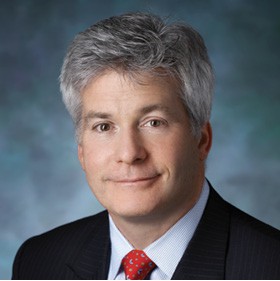by Luminis Health

‘Tis the season for get-togethers, parties and, of course, festive foods. Unfortunately for many, indulging in holiday fatty foods and alcohol triggers heartburn. And if you find that over-the-counter medications only provide temporary reprieve, you may be experiencing something more serious.
Heartburn is the most common symptom of gastroesophageal reflux disease, or GERD. The digestive disorder affects up to one in five U.S. adults. GERD occurs when the muscle in the esophagus called the lower esophageal sphincter (LES) opens or relaxes too often or for too long. This causes stomach contents to back up into the food pipe, causing heartburn and acid indigestion. While heartburn is the most common symptom of GERD, it is not the only one. Other symptoms of GERD include shortness of breath, difficulty swallowing, chest pain, chronic cough, sore throat, hoarseness and bad breath.
Here are a few things you can do to bring symptoms under control this holiday season:
- Eat earlier in the day. By planning your holiday gatherings earlier in the day, the stomach acid from the foods you eat have time to move out of your stomach before lying down for the night or taking a nap.
- Limit your alcoholic drinks. Many believe alcohol leads to reflux because it can relax the valve at the bottom of the esophagus where it meets the stomach. Limiting your drinks can help. Also, acidic mixers like orange juice or soda can cause reflux.
- Use smaller plates. Overeating can fill your stomach, pushing stomach fluid up toward your throat. Using a smaller plate helps you avoid overindulging.
- Substitute water for soda. The acid and caffeine in sodas can cause reflux, but even the carbonation can cause problems. Carbonation bubbles can expand in the stomach, causing increased pressure that contributes to reflux.
- Pass on deep frying your turkey, as well as frying other foods. Fried foods are the single most recognized cause of reflux due to their high fat content.
- Avoid creamed or cheesy foods or soups. All high-fat foods can cause reflux, so skipping the dairy items can help.
- Check with your doctor if you are experiencing symptoms continuously for more than two weeks even though you’re taking over-the-counter antacids. GERD is a recurrent and chronic disease. If left untreated, it can lead to more serious health conditions such as Barrett’s esophagus, an abnormal change in the cells of the lower portion of the esophagus, which can raise your risk of developing esophageal cancer.
No one knows for sure why people get GERD. In some cases, a hiatal hernia may contribute. A hiatal hernia occurs when part of your stomach pushes up through your diaphragm. The diaphragm, in concert with the LES, keep acid from coming up into the esophagus, but a hiatal hernia may make it easier for the acid to come up.
It’s important that you talk to your primary care doctor about your symptoms. Your doctor can provide you with treatment options that are right for you. There is not yet a cure for the disease but with lifestyle modifications and/or medications, symptoms can be managed.
If lifestyle changes and medication don’t help manage your GERD symptoms, your doctor may refer you to a surgeon. Surgery is an option when medicine and lifestyle changes do not work. Surgery may also be a reasonable alternative to a lifetime of drugs and discomfort.
 Adrian Park, MD, is chair of AAMC’s Department of Surgery and an internationally recognized specialist in minimally invasive surgery. To reach him, call 443-481-6969.
Adrian Park, MD, is chair of AAMC’s Department of Surgery and an internationally recognized specialist in minimally invasive surgery. To reach him, call 443-481-6969.


